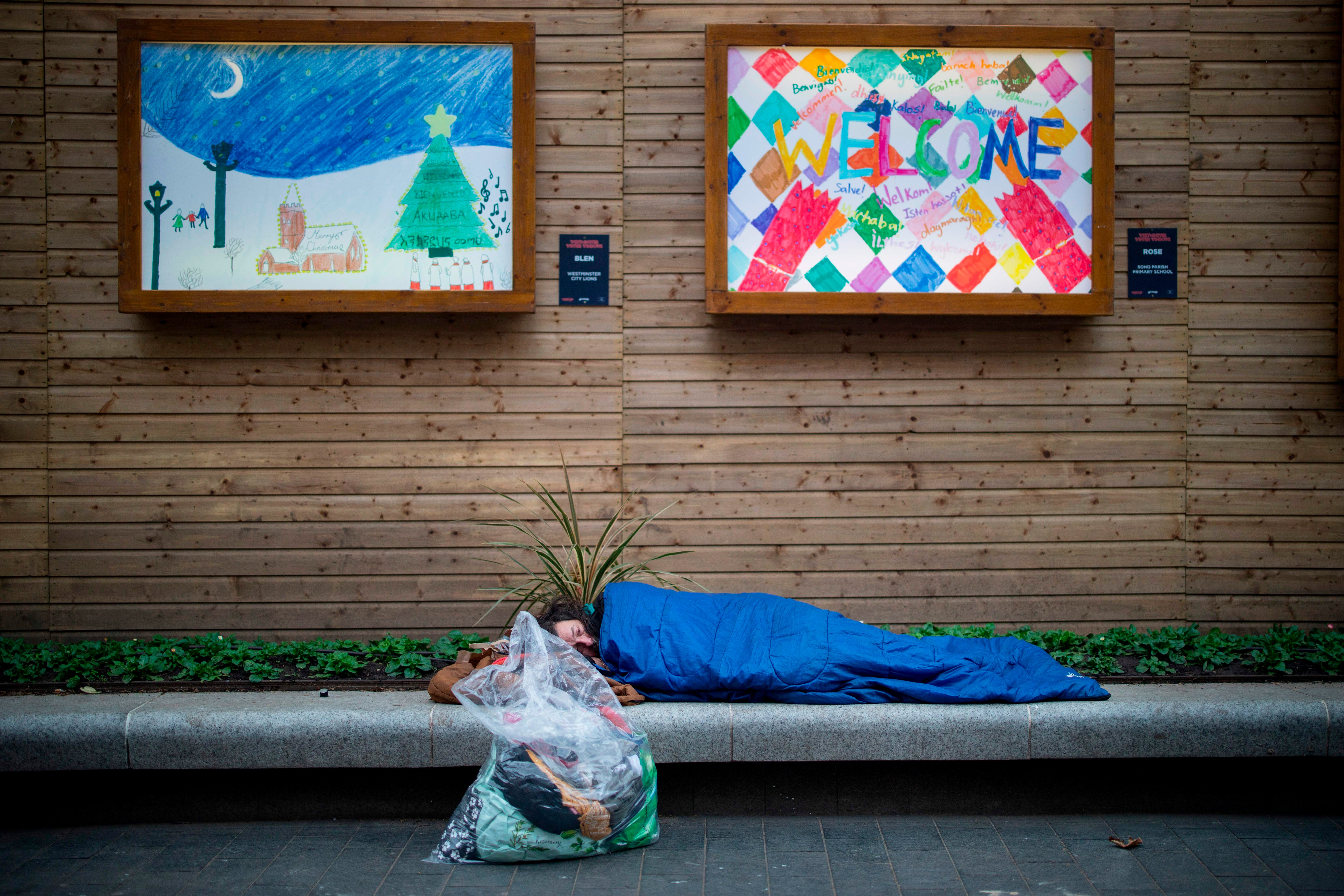The number of people sleeping rough shows a sickness at the heart of our society
More than 3,000 people sleeping rough on any given night is not the sign of a healthy social system, writes Rick Henderson


The confirmation of what many in the homelessness sector have anticipated for a while is here. After four years of declining numbers, the number of people rough sleeping in England is rising again.
The latest rough-sleeping snapshot, conducted across November and December last year, estimated that over 3,000 people slept rough on any given night in England, a rise of 26 per cent when compared to 2021 and the largest year-on-year percentage rise since 2015.
From a young person who has recently left the care system, to a woman fleeing domestic violence or someone who can’t afford to pay an increase in their rent, these are people let down by systems that should protect them, forced to sleep rough at the expense of their physical and mental health.
After eight continuous years of increased rough sleeping between 2010 and 2017, the numbers of people estimated to be sleeping on our streets started to fall in 2018 following the introduction of the Rough Sleeping Initiative funding. Between 2019 and 2020, rough sleeping fell by 37 per cent: by far the biggest year-on-year fall since records began. Numbers decreased again between 2020 and 2021. This was largely due to “Everyone In”, the government’s decision to house everyone sleeping rough, regardless of eligibility, as part of the pandemic response.
At the time, we in the homelessness sector proclaimed that we couldn’t go back. And we can’t – we must not go back to the rough sleeping peak of 2017, when nearly 5,000 people slept outdoors on any given night. We can’t go back to seeing rough sleeping as anything other than a public health issue.
But as the pandemic has faded away and the cost of living crisis has bitten, government priorities have shifted. Not only are we facing the tragedy of more people sleeping rough, it’s happening at the same time as the services designed to support them face closure.
At Homeless Link, we recently surveyed the homelessness sector, receiving 356 responses from organisations across England. Nearly half said that rising costs mean their organisations risk service closures, with nearly one in five revealing their service has already scaled back in response to rising costs.
To add to this picture, the government is planning to reduce the support available for non-domestic energy bills from April. For example, the charity Your Place, who provide accommodation and support to people experiencing homelessness in Newham, east London, are facing their annual energy costs rising from £124,000 to £620,000 from May. And they aren’t alone. P3 Charity, who run homelessness services across the UK, have already seen their energy bills quadruple in the last year. In April, they are set to double again from £240,000 a year in 2022 to over £530,000.
Clearly homelessness services can’t pass costs onto the vulnerable people they support, so these sudden increases in running costs are likely to tip many services that are already struggling over the edge. The homelessness sector houses over 32,000 people at any one time, so the number of major accommodation providers closing their doors means many more people may be sleeping rough when we count again next year.
But the government can act to change this situation. The upcoming Budget is an opportunity for it to recognise the significant increase in the cost of delivering services since it announced three years of homelessness funding in October 2021. Uprating these commitments in line with inflation will help services stay afloat when more and more people are dependent on them.
Elsewhere, it must also recognise that the new non-domestic energy bill discount scheme does not provide adequate support to third-sector organisations with high energy costs. And, as rents rise and figures show that more households are being made homeless from the private rental sector, unfreezing the local housing allowance so that housing benefit fairly represents current costs, as well as legislating the reforms outlined in the “A fairer private rented sector” white paper, will go a long way to preventing more households from becoming homeless over the next year.
Everyone deserves a safe place to live and the support they need to maintain it. More than 3,000 people sleeping rough on any given night is not the sign of a healthy society. In their 2019 manifesto, the Conservative Party recognised this by making a commitment to end rough sleeping in England by 2024. With an election on the horizon, they’re going backwards in meeting this promise.
It’s not too late to turn it around, but inaction now will mean next year’s figures will be even worse.
Rick Henderson is CEO at Homeless Link, the national membership charity for frontline homelessness services






Join our commenting forum
Join thought-provoking conversations, follow other Independent readers and see their replies
Comments